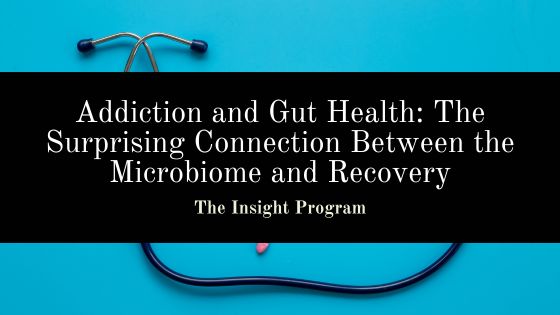When we think about addiction recovery, we often focus on mental health, therapy, and lifestyle changes. However, an emerging body of research suggests that gut health plays a significant role in addiction and recovery. The gut microbiome—composed of trillions of bacteria and other microorganisms—affects everything from mood regulation to cravings and overall brain function. Understanding this connection can provide new insights into holistic approaches for addiction recovery.
How Addiction Disrupts Gut Health
Substance abuse, particularly alcohol and drugs, can wreak havoc on the gut microbiome. Here’s how addiction negatively impacts gut health:
1. Imbalance of Gut Bacteria
Chronic substance use disrupts the balance of good and bad bacteria in the gut, leading to dysbiosis. This imbalance can contribute to digestive issues, inflammation, and weakened immunity, making recovery more challenging.
2. Increased Gut Permeability (Leaky Gut Syndrome)
Drugs and alcohol can damage the intestinal lining, allowing toxins and undigested food particles to enter the bloodstream. This condition, known as leaky gut syndrome, triggers inflammation and may contribute to mood disorders such as anxiety and depression—both of which are common in addiction recovery.
3. Nutrient Deficiencies
Addiction often leads to poor dietary habits, resulting in deficiencies in essential vitamins and minerals. A compromised gut struggles to absorb nutrients properly, further exacerbating mental and physical health issues.
The Gut-Brain Connection in Recovery
The gut and brain communicate through the gut-brain axis, a bidirectional pathway that influences emotions, cognitive function, and behavior. A healthy gut microbiome can help regulate neurotransmitters such as serotonin and dopamine, which are crucial for mood stability and impulse control.
1. Gut Bacteria and Cravings
Certain gut bacteria can influence cravings for sugar and processed foods, which can be problematic during recovery. A balanced gut microbiome helps regulate appetite and reduces the likelihood of substituting one addiction for another (e.g., sugar addiction replacing drug addiction).
2. Mental Health and Emotional Stability
A healthy gut produces neurotransmitters like serotonin, often called the “happy hormone.” Since a large percentage of serotonin is produced in the gut, improving gut health can have a direct impact on mood and emotional well-being during recovery.
Supporting Gut Health in Addiction Recovery
Improving gut health can aid in the recovery process and support overall well-being. Here are some strategies:
1. Eating a Nutrient-Dense Diet
Incorporating whole, fiber-rich foods, fermented foods (such as yogurt, kimchi, and sauerkraut), and lean proteins can help restore gut balance and improve digestion.
2. Taking Probiotics and Prebiotics
Probiotics introduce beneficial bacteria into the gut, while prebiotics feed these bacteria. Both can help rebuild a healthy gut microbiome.
3. Reducing Stress
Stress negatively impacts gut health, so practices like mindfulness, meditation, and regular exercise can promote both mental and digestive health.
Conclusion
Addiction recovery is a complex process, but addressing gut health can be a valuable tool in healing both the body and mind. By restoring the gut microbiome through diet, supplementation, and stress management, individuals in recovery can improve their mood, reduce cravings, and support overall well-being. The connection between addiction and gut health underscores the importance of a holistic approach to recovery, one that considers the entire body’s role in the healing process.

